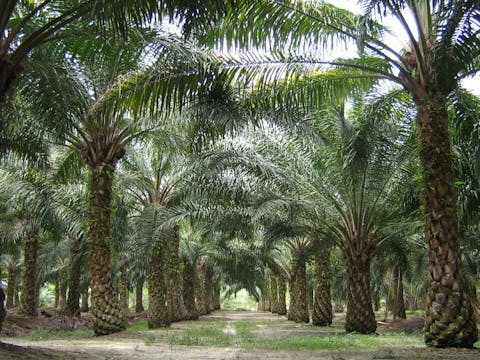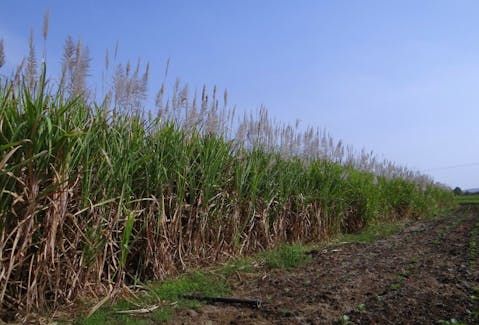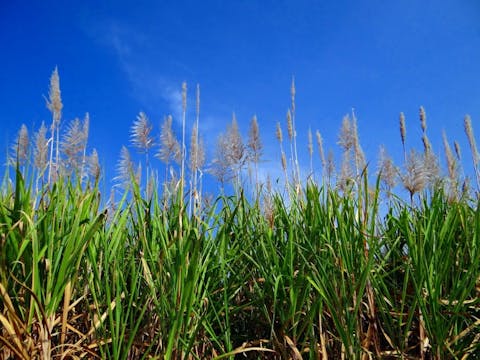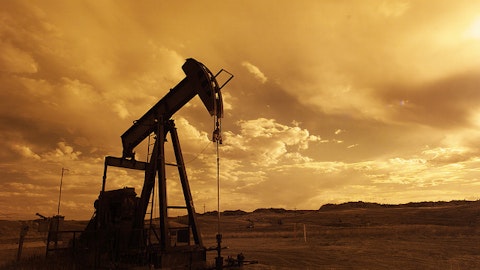The first two countries on our list of 8 countries that produce the most biofuels in the world account for 69% of the global biofuels production. The latest British Petroleum (BP) report Statistical Review of World Energy, which provides data for 2014, estimates world’s biofuels production at 70,792,000 tons, which represent an increase of 7.4% compared to the previous year.

sergspb / Shutterstock.com
Production growth in Asia, where, among top producers, only South Korea recorded decreased output, while other countries saw the increase as high as 40%, greatly contributed to the overall output boost. North American states also increased biofuels production, while in Europe only Austria had a significant output drop. The country which saw the greatest decline in the biofuels productivity was Australia, which gave almost 17% less biofuels compared to 2013.
Unlike our previous list of countries that produce the most butter in the world today’s ranking of countries that produce the most biofuels, which is based on BP’s report, is not dominated by European states.
8. The Netherlands
Production: 1,145,000 tons
We start our list with the Netherlands, which adopted EU directive to increase the share of renewable energy to 20% by 2020. Between 2010 and 2014 the country almost tripled biofuels production, and the output of 1,145,000 tons accounted for 2% of the global biofuels production.
7. China
Production: 2,038,000 tons
In 2014, China increased the production of biofuels by 3.3%. The output of 2,083,000 accounted for 2.9% of global biofuels. One of the country’s strategic plans is to increase bioenergy use. However, according to USDA, China’s goal to produce four million tons of bioethanol and one million ton of biodiesel, will be only partly met since the country is expected to give desired amounts of biodiesel while ethanol output will reach only 2.49 million metric tons. At the same time, future growth in bioethanol production is under the question because the government cut subsidies for grain-based ethanol. Finally, biodiesel output, which has doubled between 2010 and 2015, is unlikely to climb in the future since major biodiesel producers are closing plants and leaving the market.

6. France
Production: 2,269,000 tons
France is the second largest biofuels producer in the Europe. The total output of 2,269,000 in 2014, which represented an increase of 2.2% compared to a year ago, accounted for 3.2% of global biofuels. At the end of 2014, the country raised the limit for a share of biofuel in transport fuel to 8%, thus exceeding the biofuel level of 7%, which was set by the European Union. To meet higher blending levels French biofuels producer Avril opened a new plant whose capacity will reach 500,000 tons.

5. Indonesia
Production: 2,444,000
Between 2013 and 2014 Indonesia increased biofuels production by 40% which is the highest growth among 8 countries that produce the most biofuels in the world. The output of 2,444,000 constituted 3.5% of the global biofuels production. Indonesia, which is the largest palm oil producer, has put significant effort into increasing biodiesel production to reduce oil import and greenhouse emission on one side, and increase usage of tropic oil on the other. Last year the government increased biodiesel level in diesel fuel to 15% while also encouraging the production of biofuels through subsidies. However, a drop in crude oil prices at the beginning of 2016 interfered with subsidizing of domestic biodiesel supplies.

4. Argentina
Production: 2,577,000 tons
Argentina’s biofuels constitute 3.6% of the global biofuels production. Between 2013 and 2014 the country increased biofuels production by 30.9%. USDA estimates that rising production capacity will contribute that bioethanol output and consumption reach the record of 900 million liters in 2016. The same organization predicts that one half of bioethanol will be produced from sugar and the other half from grain. At the same time, 2.33 billion liters of biodiesel will be produced in the country, out of which significant share will meet the needs of growing domestic consumption while 1.02 billion liters will be shipped.

3. Germany
Production: 2,684,000
Germany is the leading biofuels producer in the Europe. Between 2013 and 2014 the country recorded the production increase of 2%, while its total output accounted for 3.8% of the global biofuels production. One of the strategic goals set by the government is to increase the use of renewable energy resource because it wants to reduce Germany’s dependence on imported oil and reduce greenhouse gas emission.
2. Brazil
Production: 16,656,000 tons
Biofuels coming from Brazil account for 23.5% of the global commodity output. Using sugarcane as a fuel, Brazil became one of the top ethanol producers in the world. Significant share of produced ethanol is made for domestic market since Brazil has the highest number of flex-fuel cars, and the use of ethanol is mandatory in the petrol mix. However, recent economic crisis deeply affected ethanol industry – three out of seven major biofuels plants were closed, construction of new plants slowed down, and farmers who used to grow sugarcane for fuel are now switching to producing the crop for food. Despite problems, the country increased biofuels production between 2013 and 2014 by 5.5%.

1. America
Production: 30,056,000 tons
America ranks as first on our list of 8 countries that produce the most biofuels in the world. The country increased its production by 5.6% reaching 30,056,000 which account for 42.5% of the world’s output. Latest data from the US Energy Information Administration shows that America produced 105 million gallons of biodiesel in February this year. The fuels were produced in 94 plants while the greatest share came from the Midwest region.





